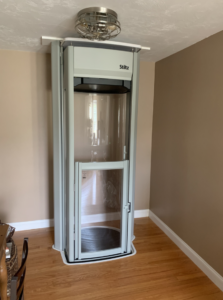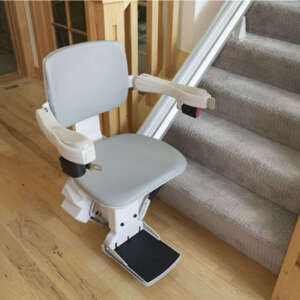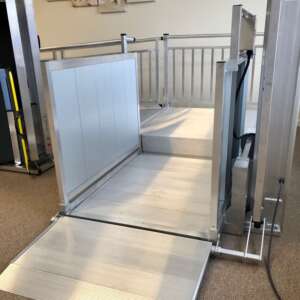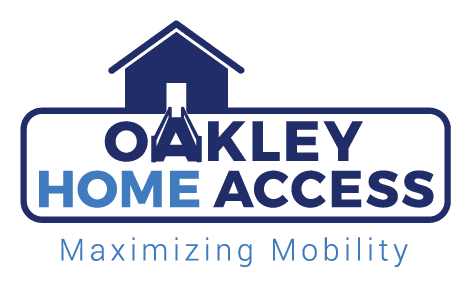Top Home Elevator Models in 2025
Wondering if a home elevator is worth it? Whether you’re in Cambridge, Lexington, or Waltham, more Middlesex County homeowners are installing elevators for convenience, accessibility, and property value. Here’s what you need to know from types and features to costs and installation timelines.
Key Takeaways
- Home elevators enhance mobility and can increase property value by 10% or more, making them a smart investment for homeowners.
- There are various types of residential elevators, including traditional, pneumatic vacuum, and hydraulic options, each with unique features to fit different needs.
- Installing a home elevator is a manageable process with various financing options available, ensuring homeowners can enjoy increased accessibility and convenience without financial strain.
Why Consider a Home Elevator?
Home elevators are more than just a convenience; If you live in a multi-level home in Middlesex County, they are a game-changer for many homeowners. Imagine effortlessly transporting heavy items like groceries or laundry between floors, or providing easy access for family members with mobility challenges. A home elevator significantly enhances mobility, making everyday living more convenient and comfortable.

Beyond the practical benefits, installing a home elevator can also be a smart financial move. Many homeowners find that a home elevator increases their property’s value by 10% or more, making it an excellent investment. Plus, the added convenience and improved accessibility can greatly enhance your home’s appeal to future buyers.
Types of Residential Elevators
Understanding the different types of residential elevators is crucial. From traditional to pneumatic vacuum elevators, each type has its unique features and benefits. Here’s a closer look at each type to help you determine which is best suited for your home use.
Traditional Elevators
These are a go-to for homeowners looking for smooth and quiet operation. Traditional elevators can be customized to blend with your home’s style, ideal for larger homes in towns like Concord or Winchester. Common sizes range from 36×48 to 40×54 inches, and heavy-duty models can support up to 1,400 pounds. Many models now come with MRL (machine-room-less) features, which save space by eliminating the need for a separate equipment room.
Pneumatic Vacuum Elevators
These elevators use air pressure to move the cab and don’t require a pit or a machine room. That makes them great for homes with tighter layouts, like in Arlington or Somerville. Models like the PVE30 are known for their sleek design, quiet ride, and easy installation. They’re also eco-friendly, using less energy and needing less maintenance than other types.
Hydraulic Elevators
Hydraulic elevators are powered by a fluid-driven piston system. They’re a strong choice for homes with more than two floors and are often built to be wheelchair accessible. They handle heavier loads and offer a smooth ride, though they may require a separate machine room.
Choosing the Right Size for Your Home Elevator
It’s important to choose a home elevator that fits both your space and your needs. Typical dimensions range from 40×54 inches to 36×60 inches. Local building codes in Middlesex County usually require at least 32-inch-wide doorways to allow for mobility aids. Weight capacity is another key factor—most home elevators can support up to 950 pounds. You’ll also need around 25 square feet of floor space for proper installation.
Installation Process and Timeframe
The installation process varies depending on your home’s design and the type of elevator you choose. Most installations take anywhere from a few days to a few weeks. Homes in historic areas like Lexington or Newton may require additional prep work if structural adjustments are needed. If your home already has a stacked closet space, converting it into an elevator shaft can help speed things up. Working with local professionals helps ensure a smooth and safe installation.
Choosing the Right Contractor for Your Home Elevator Installation in Middlesex County, MA
When installing a home elevator in Middlesex County, MA, hiring a qualified professional contractor is key to ensuring the job is done safely, efficiently, and in compliance with local building codes. It’s important to verify that the contractor holds the proper licenses and insurance required in Massachusetts, which confirms their capability to manage the technical and regulatory aspects of a residential elevator installation.
To choose the right contractor, be sure to request multiple estimates, compare pricing, and read reviews from local homeowners in towns like Lexington, Waltham, or Concord. Prioritize contractors who have proven experience with home elevators, and ensure your contract outlines the project timeline, total cost, materials, and warranty terms. Taking the time to vet your contractor will lead to a smoother installation process and long-term reliability.
Safety Features of Home Elevators
Today’s residential elevators are built with safety in mind. Some of the most common features include:
- Emergency brakes that activate automatically in case of a malfunction
- Battery backup systems to keep things running during a power outage
- Door sensors that stop the elevator from closing on an obstruction
- Emergency stop buttons for added control
- Overload sensors that trigger an alert if too much weight is in the cab
These features make home elevators a reliable and secure choice for families with children, seniors, or guests with limited mobility.
Cost Considerations for Home Elevators
Costs vary widely depending on the elevator model, level of customization, and installation needs. Here’s a general breakdown:
- Base model elevators start around $20,000
- High-end systems can reach up to $300,000
- Installation costs typically range between $10,000 and $15,000
Pneumatic vacuum elevators tend to be more affordable due to their minimal construction needs. Financing options are widely available, and some local installers offer flexible payment plans that make it easier to invest in your home’s future.
Maintenance and Modernization
Just like any home system, elevators need regular maintenance to stay safe and functional. Yearly maintenance usually costs between $300 and $600. If your current elevator is older, modernization can make a big difference, improving energy efficiency, safety compliance, and ride quality. You’ll also likely see smoother performance and lower repair needs over time.
Space-Saving Elevator Solutions
Not every home has extra room, but that doesn’t mean you can’t install a lift. Compact options like shaftless elevators or pneumatic models are perfect for tighter homes or two-story spaces.
- Shaftless elevators are designed to connect two floors and require minimal construction. They often run on standard household power and work well in homes with limited space.
- Pneumatic elevators are also great for smaller footprints. They don’t need a machine room or pit, which keeps installation simple and space-efficient.
These options are ideal for homes in denser areas like Woburn or Malden.
Eco-Friendly and Energy-Efficient Elevators
Looking to lower your carbon footprint? Pneumatic elevators are among the most energy-efficient systems available. They use less electricity, require less maintenance, and don’t rely on oil or hydraulic fluid. Eco-conscious designs help homeowners in towns like Bedford or Acton reduce energy bills and contribute to a greener future.
Additional Mobility Solutions
In addition to home elevators, there are several other mobility solutions available to enhance accessibility in multi-level residences. Stair lifts, for example, are essential devices that assist individuals in accessing multiple floors, accommodating those with mobility challenges. They are a practical and affordable alternative to installing a full elevator.

Dumbwaiters, vertical platform lifts, and goods lifts are other options to consider. Dumbwaiters are compact elevators designed for moving small objects between floors, commonly used in kitchens and libraries. Vertical platform lifts and goods lifts facilitate the movement of heavier items and improve accessibility in homes.

After:
Other options to consider include:
- Dumbwaiters, which are compact elevators designed for moving small objects between floors, are commonly used in kitchens and libraries
- Vertical platform lifts, which facilitate the movement of heavier items
- Goods lifts, which improve accessibility in homes, include small elevators.
These additional mobility solutions offer a range of options to suit various needs and preferences.
Discover Expert Home Elevator Solutions with Oakley Home Access
If you’re considering installing a home elevator to improve accessibility, comfort, and value in your Middlesex County home, Oakley Home Access is here to help. We specialize in creating safe, stylish, and functional living environments through expert solutions in fall prevention, aging-in-place, and accessibility upgrades.
Whether you’re exploring traditional, pneumatic vacuum, or hydraulic elevators, or need guidance choosing the right fit for your space, our team is ready to walk you through every step of the process. From selecting the right model to navigating installation and financing, we’re your local resource for thoughtful, reliable service. Contact Oakley Home Access today to learn more about how a home elevator can transform your home and your lifestyle. Let us help you elevate your home’s safety, convenience, and long-term value.
Frequently Asked Questions
Can a home elevator be added to an existing home, or is it only for new builds?
Yes, a home elevator can be added to an existing home. Retrofitting is common and can often be accomplished with minimal structural changes, especially with compact models like shaftless or pneumatic elevators. The key is working with experienced contractors who can assess your home’s layout and suggest the best installation approach.
Do home elevators require a special type of electrical setup?
Some residential elevators like shaftless or pneumatic models can operate on standard 220V household electrical service, while others (particularly traditional or hydraulic types) may require dedicated circuits or higher voltage. A licensed electrician and your elevator installer can determine what’s needed based on the model you choose.
Are there customization options for home elevators to match my home’s style?
Absolutely. Many home elevator models offer customization for cab finishes, lighting, door styles, control panels, and even flooring. This allows you to match the elevator’s appearance to your interior design whether you’re aiming for a classic look or a sleek, modern feel.
